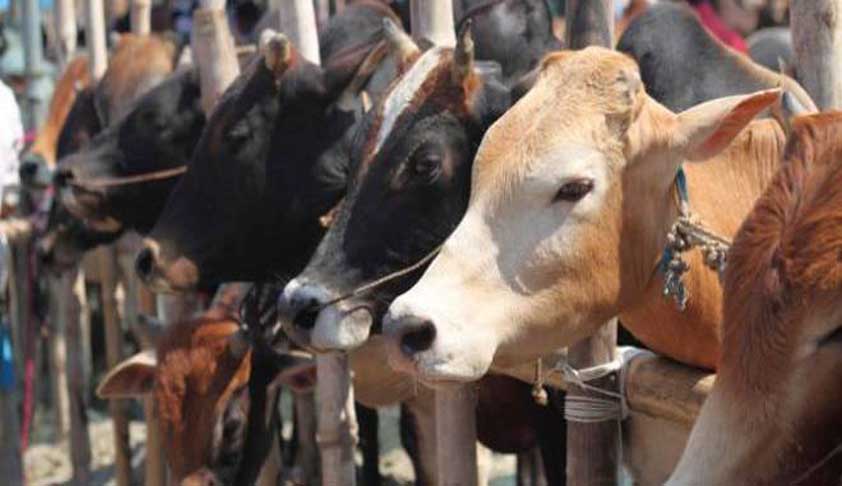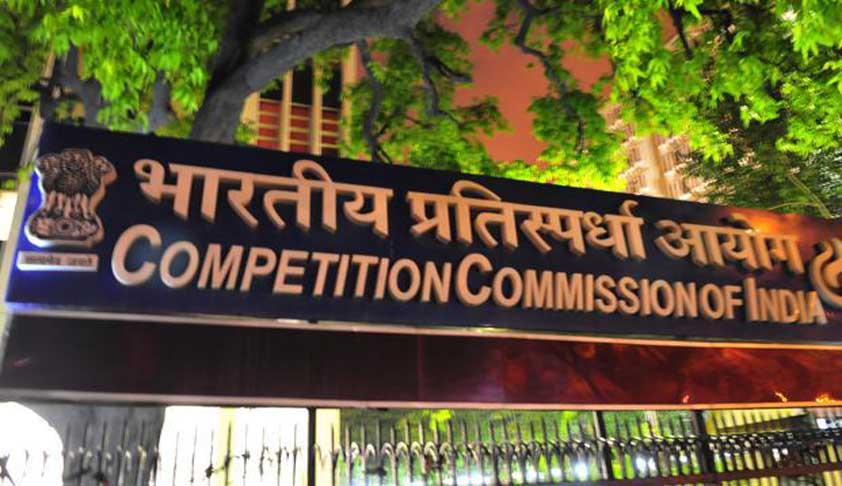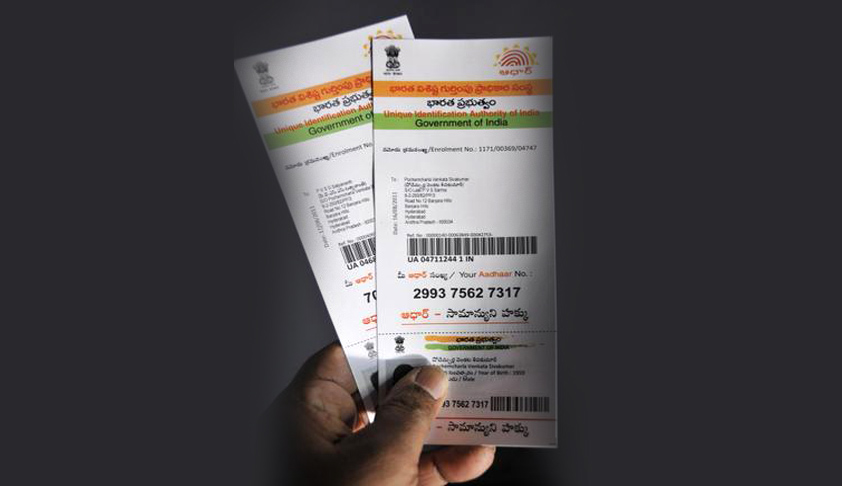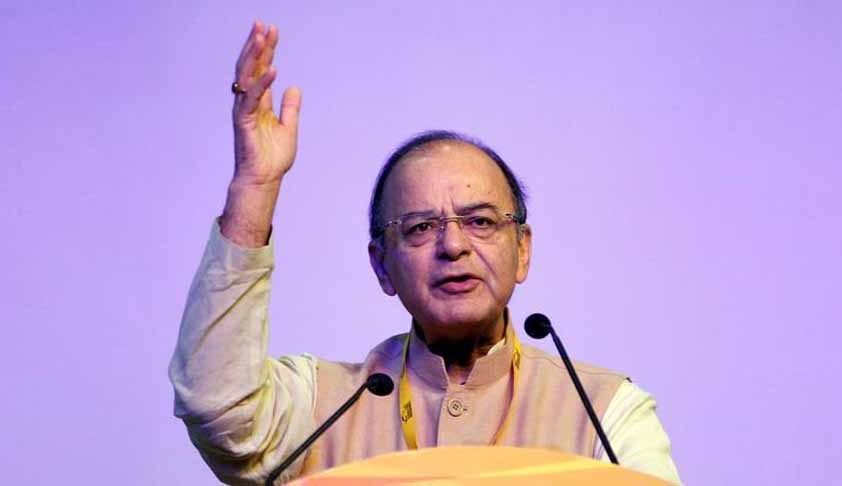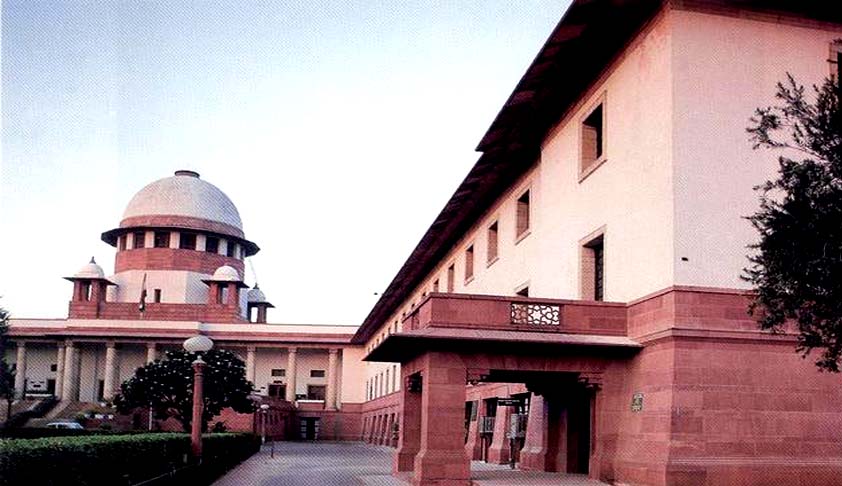![]() Chanakya SharmaCourts and their legal limits: The imbroglio of the judgment recommending the cow to be the national animal. In cases where the expression of the court’s opinion is coloured with moral overtones, the credibility of the court can lead to more harm than good.
Chanakya SharmaCourts and their legal limits: The imbroglio of the judgment recommending the cow to be the national animal. In cases where the expression of the court’s opinion is coloured with moral overtones, the credibility of the court can lead to more harm than good.
Be it Rajasthan High Court’s judgment on recommending cow as the national animal or the Supreme Court’s infamous take on the National Anthem, it is only a superficial understanding that attempts to understand the morality of these problems.
The latest judgment to have raised even the most passive eyebrows from the civil society is that of the Rajasthan High Court recommending to the Centre the designation of cow as the national animal.
The judgment has been criticised for, inter alia, its reference to the health benefits of cow urine, mention of cow in Vedas and most of all for its virgin-peacock analogy.
Similarly, the judgment by the Supreme Court mandating the National Anthem was vehemently criticised for its overreach and many termed the decision “forced nationalism”.
However, there lies something common between all these instances. Something that forms a part of the judicial process in each of these cases, yet skips the attention of the best of critiques, including the judges themselves.
Far beyond an average critique’s comprehension lies the real question - that of legal limits of the courts. That the Supreme Court and high courts enjoy plenary powers is an admitted fact. But under scrutiny in this piece is the conception of this power by those very persons who wield it, i.e., the judges.
COURTS AND AMORALITY
An average reader not trained in law often assumes that the controversial issues decided by courts are all moral questions. While most of them, in their ultimate analysis, are moral questions, the truth less known is that it is not always about morality of the specific issue itself.
The US Supreme Court in
Obergefell vs Hodges[1] was confronted with deciding on the issue of legality of
same-sex marriage in states that expressly did not recognise it.
The legal hurdle was that a same-sex marriage registered in a state where it was allowed was not recognised as valid marriage in those states that did not allow the same. The petitioners claimed that this restriction violated the 14
th amendment that guarantees
“equal protection of law” and “due process”.[2]
The court gave a sharply divided decision by 5-4,
five judges upholding the validity of same-sex marriage and the four deciding otherwise.
The interesting question is whether the four dissenting judges (including the renowned judge Justice Scalia) were all narrow-minded bigots? Was the vision of all four judges, from the oldest democracy in the world, celebrated for its taste for liberty, coloured by gender-bias or stigma? Indeed not.
In fact, one can argue that these four were even more passionate about gender-based equality becoming a reality, as opposed to a mere academic idea. How so?
The four judges did not even go into whether same-sex marriage was moral or otherwise. They simply highlighted that a societal issue deserves more than mere conviction of nine Supreme Court judges. Justice Scalia wrote:
“With each decision of ours that takes from the People a question properly left to them—with each decision that is unabashedly based not on law, but on the “reasoned judgment” of a bare majority of this Court—we move one step closer to being reminded of our impotence.”
The dissent concluded that any social change, including even an expansion of definition of marriage, should come from the ‘
people’ after extensive debate and discussions, like it did in other states that allowed same-sex marriages. What is the hazard in doing otherwise? Several.
The generation that looks forward to court for redress for these moral claims often forgets that courts can guard against legal discrimination, but not so much against the social discrimination, the one that exists inside the skull.(Emphasis mine
).
The upshot is that while a same-sex couple enjoys all legal benefits that were otherwise unavailable, there is evidence that discrimination and stigma continues.
The same judge, Justice Scalia J, in
Texas vs Johnson, wherein protester Johnson was charged for desecrating the US national flag, ruled in favor of Johnson holding that if a man wishes to burn the flag, he may.
The judge also popularly said: “If I were the King, I would send the beardo (Johnson) to jail, but the fact is that I am not.”[3]
The divergence in opinion of the same judge of the US Supreme Court in two distinct moral problems makes it imperative that the morality of an issue should not and cannot be the sole criterion for judicial decisions. What follows is that there is something that makes a court the least feasible forum for purely moral judgments. What is that thing?
In every democracy, the independence of judiciary is crucial, for it guarantees most cherished freedom even during most turbulent times and, thus, making it different from dictatorship. This guarantee, however, comes at a cost. The price being that the power is so separated between institutions that even when the government wishes to curtail basic freedoms, and the courts are to act as the guardians, it is the same government that wishes curtailment, which is ordered (through executive side) by the court to act otherwise.
Simply put, the premium that a subject of democracy pays over subject of dictatorship is that in former, the rights are recognised first and enforced afterwards whereas in latter, where the King is the arbiter as well as the enforcer, the rights are recognised and enforced contemporaneously.
The biggest limitation that even the most superior court (Supreme Court) has, by design, is that it cannot enforce the noblest of its observations.
That it needs a robust executive to do so is only a part of deeper concern and not the deeper crisis itself. What then is the deeper crisis that awaits all, but is understood by none?
Loss of credibility: The ultimate danger
The crisis is that of the sanctity of a judicial pronouncement.
Justice Scalia noted:
“The Judiciary is the “least dangerous” of the federal branches, because it has “neither Force nor Will, but merely judgment; and must ultimately depend upon the aid of the executive arm” and the States, “even for the efficacy of its judgments”.[4]
This observation has immense value. As noted, the judiciary has neither the will, nor the force but only its ‘judgment’. And the judgment, irrespective of its conclusion, derives most of its strength from the
credibility of those holding it.
Diverse set of people with even more diverse interests approach the courts. But they approach the courts not solely on the belief that court’s outcome will be in their favour, but also because of their faith in the process.
A Supreme Court-constituted SIT (Special Investigation Team) differs from the CBI investigation in the same way as a CBI investigation differs from the ordinary police investigation. The principal difference is that of credibility.
The credibility of courts flows not from the appropriateness of their decisions, but from the ‘
process’ that they adopt to reach those decisions. It is the non-partisan and the amoral stance that gives the courts the credibility they enjoy.
Given that the courts will have to invariably decide on questions that have the trappings of being purely moral, it is not only the content, but also the tone and tenor of how a view is expressed, that plays a crucial role.
In fact, a good judgment that does not have its tonalities right, may lead to more harm than good.
For instance, compare the Indian Supreme Court’s judgment in Suresh Kumar Koushal with Justice Scalia’s dissenting opinion. Both draw similar conclusions vis-à-vis the constitutionality; that the expansion of LGBT rights is the sole prerogative of the legislature. However, while Scalia’s dissent did not receive any harsh criticism, the use of phrases like
“so-called rights” and “miniscule minority” by the Indian Supreme Court received significant criticism.[5]
Extreme caution is required also because what a judgment by the Supreme Court or high court
exhibits,
inspires and finally
operates as may not be the same thing always. In fact, in most inapt judgments, one will find that there is no marriage between the three.
Take the judgment of the Rajasthan High Court on cow, for instance.
The judgment legally
exhibits the lawful concern of certain cow-protection activists seeking from the court a direction to the civic bodies to perform their obligations where they have failed to.
But it goes further on to
inspire something that it does not exhibit i.e. the Vedic importance of cow.
And finally it
operates legally on a wholly different plane when the judge, in the final order, allows anyone who wishes to get the cow declared as national animal to file a writ petition meaning that the court has showed its arms wide open for litigants whose only grievance is that an animal of their choice does not hold the most coveted position.
Has there been no instance where a high court was approached for animal rights? But the problem occurs only when the judgment
inspires beyond what it
exhibits i.e., its unnecessary reliance on importance of cow-products, the recommendation of making cow the national animal, etc.
What are the hazards posed by the judgment? Several.
While fueling religious ego of certain people and creating disgust in minds of the liberal civic society, the judgment carries a potential hazard to the judicial system itself. The most perilous result is that of loss of credibility.
In cases where the expression of the court’s opinion is coloured with moral overtones, the credibility of the court can lead to more harm than good. The decision of a court usually enjoys a significant degree of ‘endorsement value’ only because of the credibility that it enjoys.
This carried ‘endorsement value’ of a decision often becomes the sole basis for justification of an idea, more so for the part of the population that is incapable of understanding its consequences.
For all practical purposes, the judgment of the Rajasthan High Court can be used by a naïve fundamentalist who would now justify lynching by cow protectionists only on the pretext of the recognition given by the high court. That the companies selling cow products might start using high court’s indirect validation is obviously an exaggeration, but it tells us the repercussions that individuals can create for institutions they represent.
The courts might appear to a common man to be his guardians because of their ability to give controversial decisions in
one out of
10 cases.
But these very courts maintain their credibility before the executive by leaving those
nine cases where their interference is not called for.
In affairs of justice administration, just as in the affairs of warriors, the Shakespearian rule applies. While for a warrior “discretion is the better part of valour”, for a court ‘restraint’ is the better part of ‘discretion’.
The question thus is not
how a court exercises its discretion in choosing between conflicting morals, for that it will invariably have to do (triple talaq), but the real question is as to
when it should exercise its discretion and when, only restraint.
(The author is a third year student of BA LLB (Hons) at Dr Ram Manohar Lohiya National Law University, Lucknow. He may be contacted at chanakya.rml@gmail.com)
[1]Obergefell v. Hodges, available at
https://www.supremecourt.gov/opinions/14pdf/14-556_3204.pdf
[2]14
th Amendment, US Constitution.
[3] Available at
http://www.businessinsider.in/Justice-Scalia-Says-He-Would-Jail-This-Bearded-Weirdo-If-He-Were-King/articleshow/32742355.cms
[4]Scalia, Final Para in
Obergefell v. Hodges.
[5]http://timesofindia.indiatimes.com/india/So-a-small-minority-has-no-rights/articleshow/27303042.cms
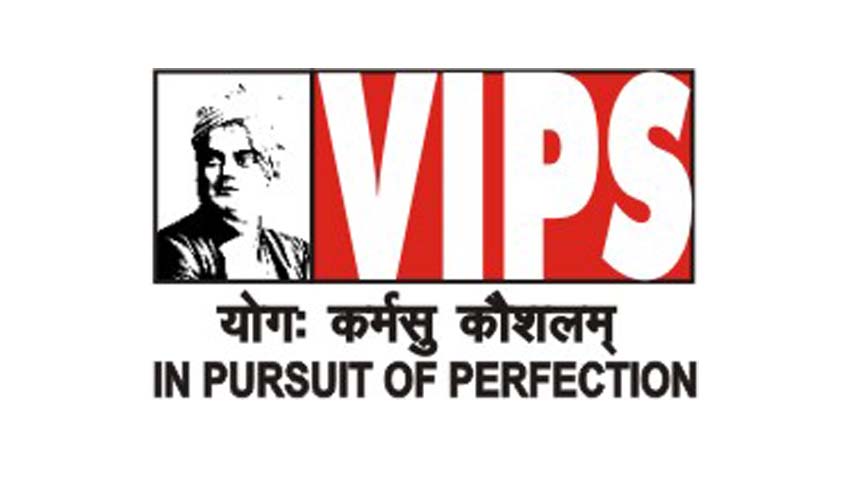


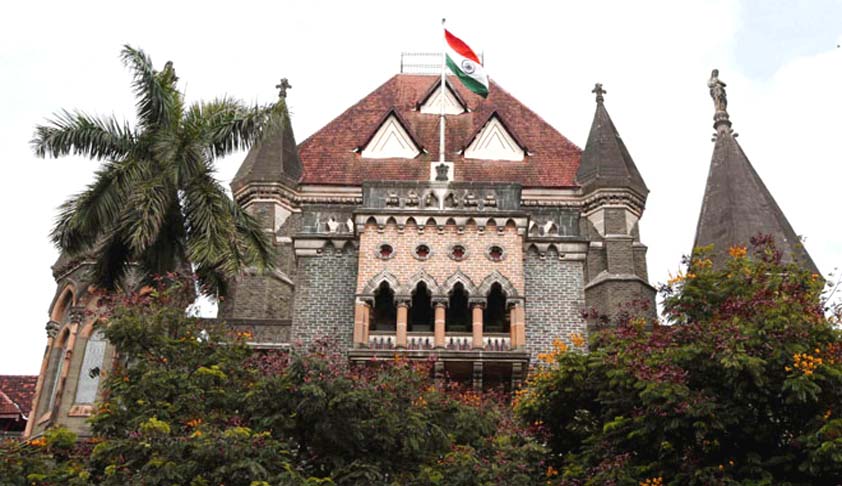
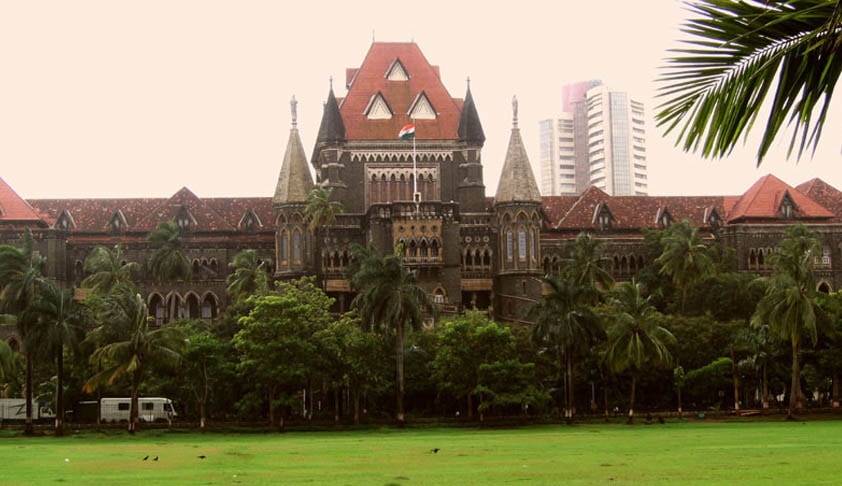
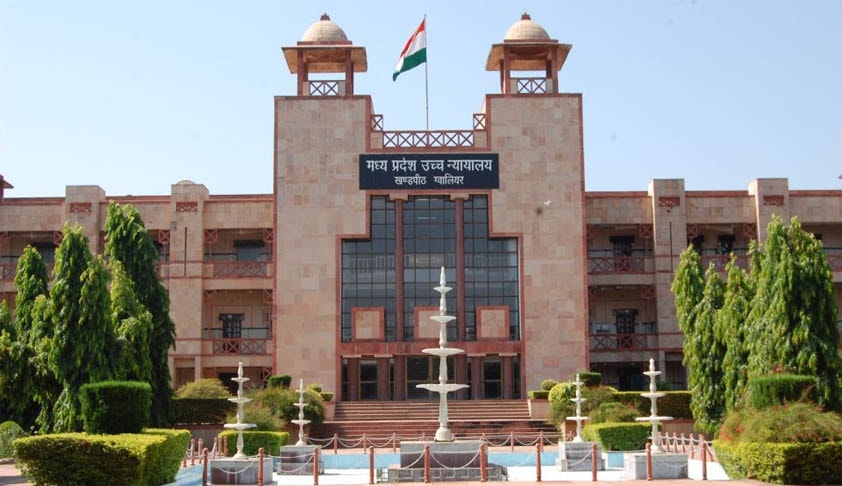
 ?[/caption]
?[/caption]

